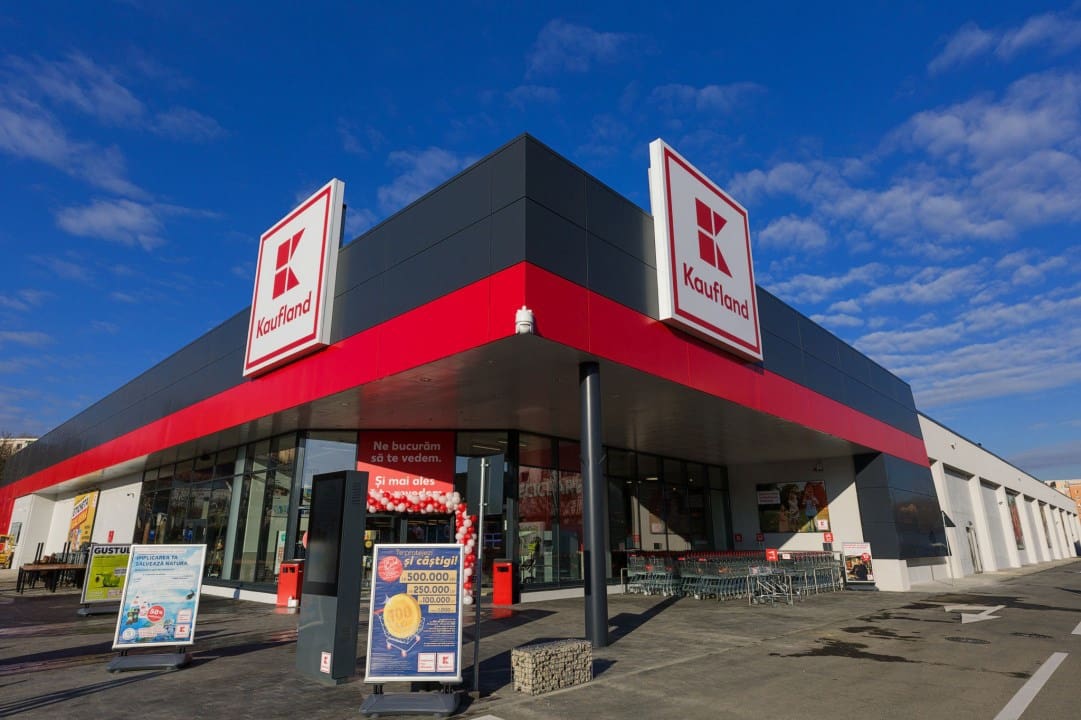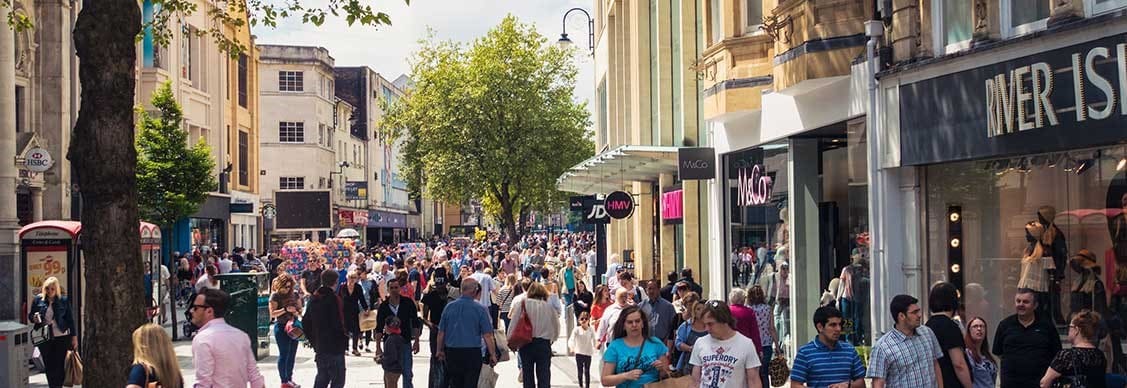Continuing to build solid partnerships:
Kaufland Romania, one of the largest retailers built its 172nd hypermarket

A significant milestone has been achieved by one of the largest retail operators, Kaufland Romania, which inaugurated its 172nd hypermarket this month. On November 2nd, the gates of a new project opened in Urziceni, Ialomita.
Like all Kaufland assemblies, this venture demonstrated remarkable professionalism and dedication. Spanning a total area of 5,063 sqm, the new hypermarket includes approximately 3,000 sqm of shopping space, more than 250 parking lots, electric car charging stations, bicycle racks, and an outdoor grill spot for take-away food. The gallery also houses various individual shops, such as a pharmacy, pet shop, a medical optical store and a sweets shop. In line with Kaufland’s continuous commitment to environmental protection, a separate waste collection system has been implemented within the premises.
We take immense pride and satisfaction in being part of this exciting new project. At Kaufland Urziceni, Vitalis Consulting provided Project & Cost Management and Site Management Services.
Project and Cost Management are indispensable for every construction project. Why? Because they require constant supervision, a continuous infusion of creativity, business and technical innovation, and, most importantly, effective leadership to oversee these specifications. Conversely, effective Cost Management Services play a vital role in managing costs, budgets, and resource allocation throughout the entire process. Budgets are crafted realistically to align with the specific needs of the client.
The Vitalis team provided Site Management Services in Urziceni by maintaining constant oversight of everything happening on the site, including status updates, material stocks, subcontractor roles, etc. The Site Manager maintained close communication with the Project Manager, forming a solid and resilient team.
Over the years, Vitalis and Kaufland have collaborated on the expansion of other hypermarkets, such as Kaufland Voluntari, Kaufland Palazu Mare, and Kaufland Caracal. These ventures have proven to be successful in their progress within the Romanian market. We are genuinely proud to add another retail project to our catalogue.
We extend our congratulations to our partners for another outstanding project. Our long-term collaboration continues to evolve, our projects thrive, and day by day, we reaffirm that professionalism is the most crucial tool in the construction sector.
Exciting news awaits just around the corner. Stay tuned to learn more about our upcoming projects!
Decreasing inflation and stable economic growth
The inflation rate has been on a downward trend in Q2, reaching an y-o-y level of 10.7% at the end of H1 2023 in Romania and it is expected to be in single digits from Q3 onward. The monetary policy rate has not been increased by the National Bank of Romania since January, remaining at 7.00%, with possible downward shifts at the end of the year. The Q1 and Q2 economic growth has been solid (3.8% and 3% respectively), the local economy being one of the best – performing ones in Europe in a very challenging context characterized by inflationary pressures and also by numerous geopolitical issues.
A consistent GDP growth of 2.6% is also forecasted for 2024, a year with 4 rounds of elections in Romania.

Low transactional activity in H1 2023
A real estate investment volume of only €181 million was recorded in Romania in H1 2023, corresponding to a decrease of 43% compared with H1 2022. The increasing financing costs made investors more selective and delayed several ongoing transactions. The most active segment in H1 2023 was the Industrial one (37% market share out of the total volume transacted), followed by the Office (32%), Retail (21%) and Hospitality (10%) sectors. The largest transactions was related to FM Logistic’s sale and leaseback of its Romanian portfolio (98,000 sq. m GLA) to CTP for around €60 million. In regards to offices, Vincit Union acquired One Herastrau Office for €21 million, while Yellow Tree purchased Olympia Tower for approximately €15 million, both assets being located in Bucharest. The most relevant retail transaction involved Iulius Group’s disposal of 50% of their Family Market retail parks located in Iasi to W&E Assets for around €15 million.
Yields continue to move upwards in H1
The prime yields continued to move upwards across all segments, very much in line with the trend registered in the entire CEE region, as the office and retail each recorded a 25 bp spike, with a lower 10 bp rise for industrial & logistics assets respectively. Even though the high interest rates continue to put a significant pressure on exit yields, Romania remains an attractive market, as the spread between the local references and the other CEE countries, such as the Czech Republic, Poland or Hungary is relatively high on all market segments (generally in the 100 – 200 basis points’ range).
(Source: www.wechinox.com)
Why private investors are shopping for retail real estate

Investment in retail has for most of the past decade been dominated by institutional investors. But in recent months, private investors have been increasingly getting in on the act, with a greater share of investment in retail real estate now in the hands of private capital and family offices, according to JLL data. Private capital’s share of overall investment in retail across EMEA more than doubled between the middle of 2022 and mid-2023 to 15%, according to JLL data. At €1.76 billion (US$1.88 billion), investment by private capital in retail was at its highest for a six-month period since 2019. In Spain for example, family offices and private investors this year bought units in Madrid, while in France, Vicartem REIM sold the St Hermentaire Draguignan retail park to a private investor.
Private capital has long invested in real estate. But the shifting demand to retail comes as larger investment groups are pausing for thought, “creating a chance for private investors to invest in a less competitive market”, says Sandra Ludwig, Head of EMEA Capital Markets at JLL.
“Private capital is expanding its footprint and gaining momentum – and that’s due to both economic and cyclical shifts,” she says. “There’s a pause among larger, traditionally more active institutional investors, while at the same time repricing of retail assets is opening up opportunities, particularly those smaller lot sizes,” she says.
Banking on relationships
Part of the change is rooted in the debt markets, where private investors can be nimble.
“Not only are investors in smaller retail assets, up to €30 million ($32 million), often less dependent on finance,” Ludwig says, adding that they also often have a so-called house bank for the long-term, which eases access to more attractive debt terms and, in turn, helps speed up transaction processes.
“There’s definitely a strong degree of agility to how private capital operates when both on and off market opportunities arise,” she says. “They can change strategy and pivot quite quickly. And smaller sales processes are often preferred, with less appetite for bidding process over several rounds.”
As private capital continues to flow, geopolitical turbulence across the globe could also be a factor, with investment decision-making among institutions impacted by instability and, in some cases, family offices looking to invest in locations they perceive as safe havens.
(Source: www.jll.com)
